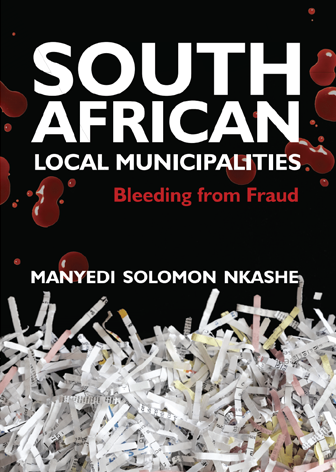Unisa Press
| Author:
| Manyedi Solomon Nkashe |
| Published:
| August 30, 2024 |
| ISBN:
| 978-1-77615-198-1 |
| Number of pages:
| 207 |
| This book is not available in electronic format |
About the book
Fraud and corruption are two debilitating pandemics from which South Africa and the entire African continent need healing and restoration. Despite robust legislation promulgated against these, they have, however, been institutionalised and are on an upward trajectory. In South Africa, excellence is ignored and punished while mediocrity is celebrated and promoted. The appointment of unqualified personnel through cadre deployment instead of skilled personnel is the case in point in municipalities. This has inevitably led to the current state quo of dysfunctionality within municipalities where service delivery is heavily compromised. Every year, the Auditor-General is auditing municipalities with only a few having clean audits while others are perpetual delinquents with no consequence management. In most cases, politicians who are implicated in corrupt activities are neither arrested nor prosecuted while only a few public servants seem to be sacrificial lambs. The VBS Bank looting, Estina Dairy Farm, Bosasa, State capture and Phala-Phala are corruption classics within the South African context and yet still sub judice while money laundering and illicit financial flows have cost the country to be greylisted. Mismanagement of state-owned enterprises which collapsed Eskom, SAA, Transnet and PRASA, among others, is the biggest crises the country face, with massive economic consequences with some exports diverted to Mozambique Harbour. This book attempted to develop a systematic model that can be applied in the public sector to train employees to detect, deter and eradicate fraud and corruption. Therefore, professionalisation of the public service in all three tiers of government could fix service delivery challenges.
